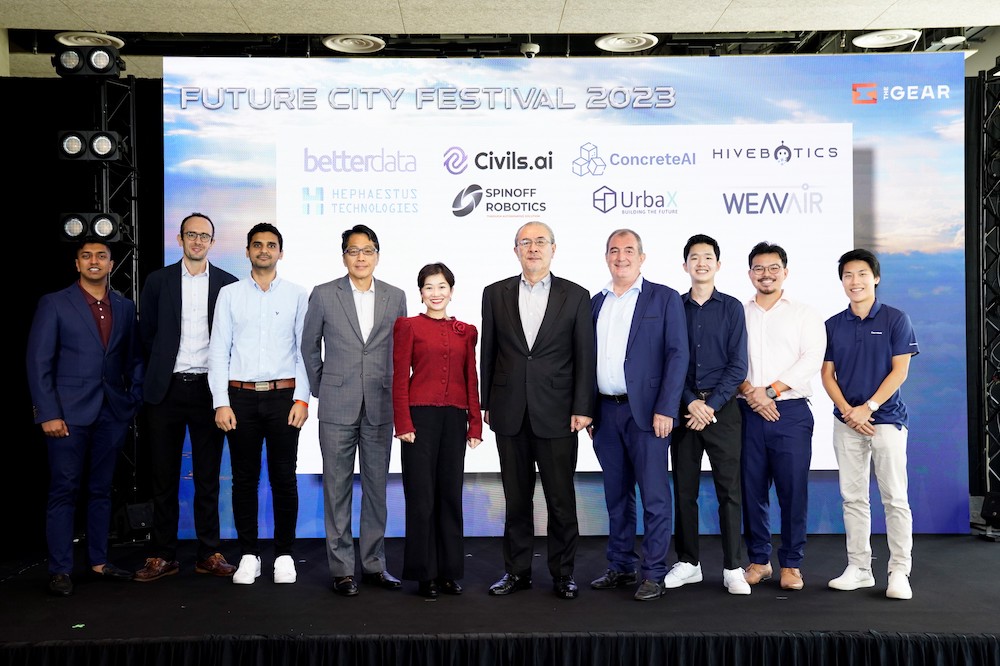Kajima Development, a subsidiary of Kajima Corporation, one of Japan’s oldest and largest construction companies, hosted Future City Festival (FCF) 2.0, the second edition of its innovation day event, on March 15, 2024, at The GEAR, its regional headquarters in Singapore.
Organized in collaboration with the Building and Construction Authority (BCA), FCF 2.0 offered a platform for Kajima and its partners to showcase innovation initiatives unfolding in the region’s built environment sector under their charge.
In a company statement, Luke Wu, head of innovation at Kajima Development, highlighted the organization’s vision of transforming The GEAR into a testbed and community hub for the industry. “The GEAR serves as a global meeting ground for a diverse community of stakeholders. Here, ideas converge, innovation thrives, and partnerships blossom. Our facility is not just a physical space—it’s a catalyst for collaboration, a nucleus where minds unite to shape and redefine the future of the built environment.”
A catalyst for collaboration
One immediate impact Kajima has made since inaugurating The GEAR in August 2023 has been with startups operating in the built environment sector. When Kajima held the first Future City Festival in September 2023, it concurrently initiated a residency program in partnership with venture development firm Rainmaking APAC, onboarding eight startups with which it supported and explored collaborations over the past six months.
The program has yielded meaningful results since its launch, with various use cases identified and undergoing further exploration. For example, Betterdata, a startup looking to pioneer synthetic data generation techniques as a privacy enhancing technology, is working with The GEAR to collect and analyze occupant data in compliance with local data protection laws.
UrbaX, a research project supported by the National University of Singapore that provides high-performance and eco-friendly concrete binders, has also begun applying its sustainable repair and protection product to a concrete structure at The GEAR to prevent water penetration and cracks.
Including Betterdata and UrbaX, all eight startups of the program’s first cohort presented their solutions and collaboration progress with Kajima during a demo day segment incorporated into FCF 2.0.
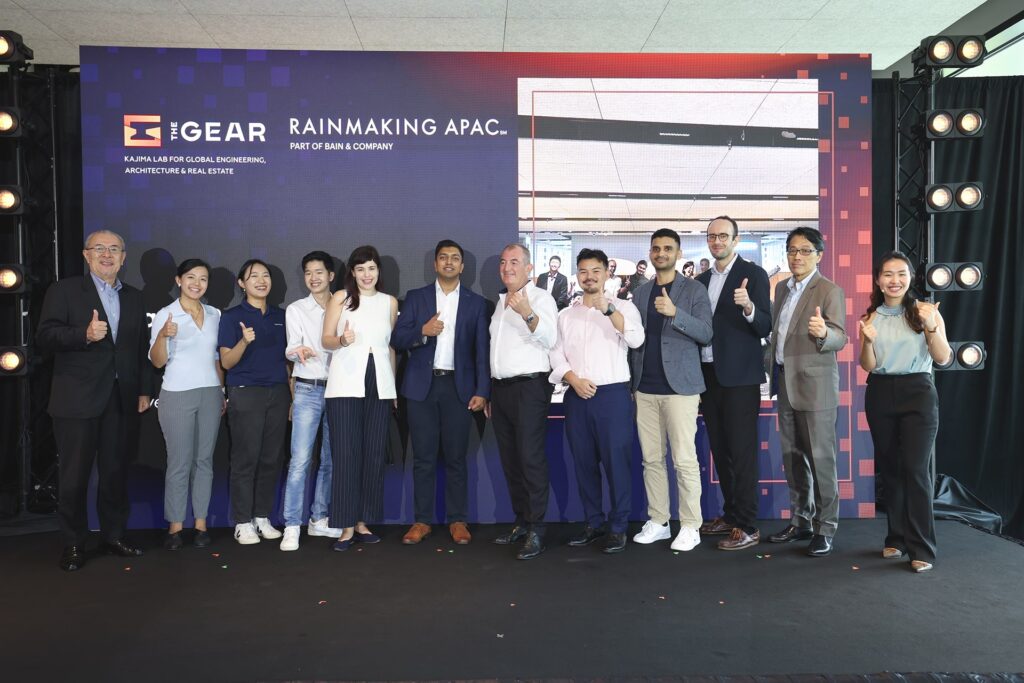
FCF 2.0 also featured several significant milestones. Among them was the launch of challenge statements by the Building and Construction Authority (BCA) for the fifth cycle of its Built Environment Accelerate to Market Programme (BEAMP). Additionally, Kajima and the Singapore University of Technology and Design (SUTD) signed a three-year memorandum of understanding aimed at fostering talent development and technology commercialization within the built environment sector.
Another highlight was the presentation of the Kajima-BIG Startup Award to Hoo (stylized as “HOO”), a student-led initiative that developed a smart tap attachment leveraging real-time data to reduce water usage. They are the youngest team ever accepted into the Singapore Management University (SMU)’s Business Innovations Generator (BIG) program. This award, jointly presented by Kajima and SMU, aims to strengthen industry engagement with startups.
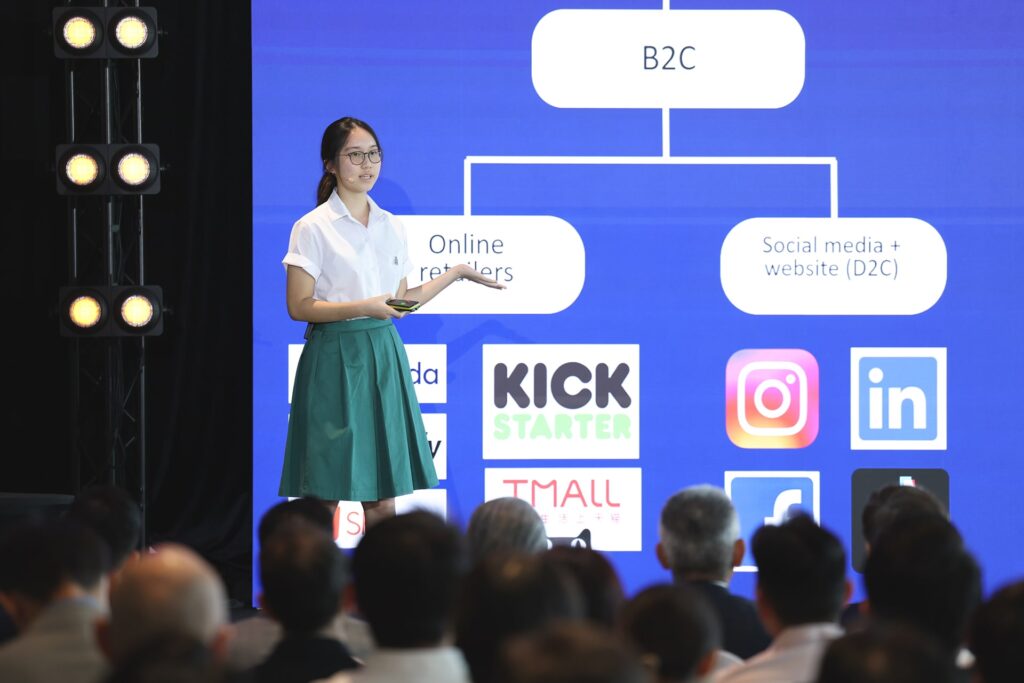
Bridging the gaps
To complement its residency program, Kajima has added a building block to its innovation-focused initiatives with a new community access program, which it introduced during FCF 2.0.
Acknowledging that startups may lack a platform and the resources they need to scale effectively, this new program offers exclusive access to workspaces and facilities at The GEAR, including an opportunity to showcase their products and solutions, as well as exposure to Kajima’s ecosystem network, comprising corporations, institutions of higher learning (IHLs), investors, and regulators, among other entities, interested in collaborating with startups at The GEAR.
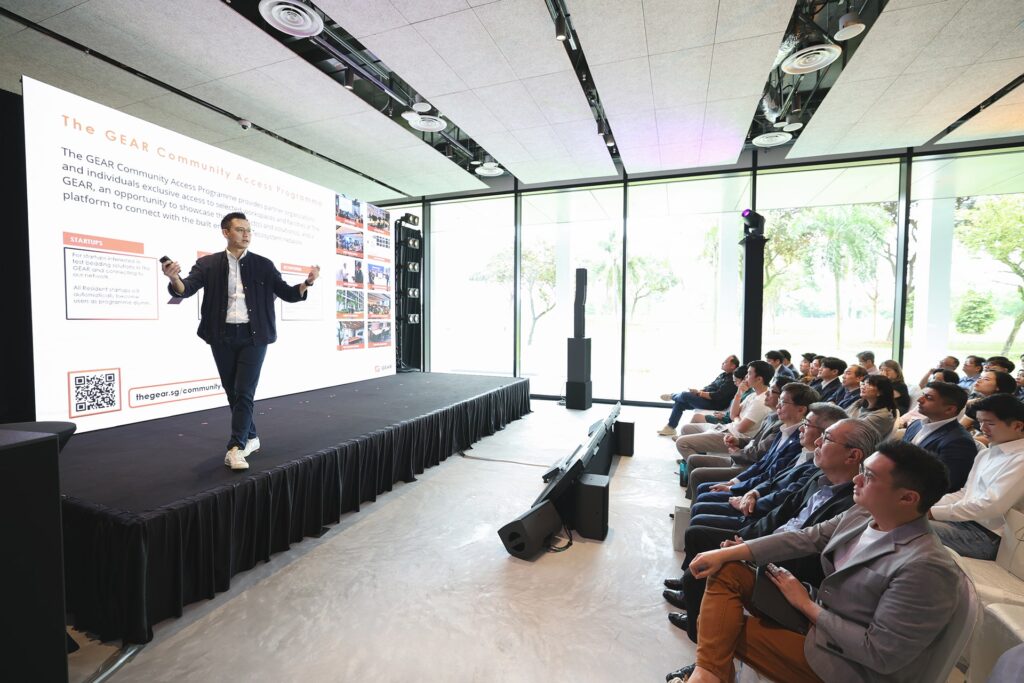
Addressing the “funding winter”
Adding to the sequence of activities at FCF 2.0 was a panel discussion that explored the strategies of venture capitalists amid the current “funding winter” and turbulent socioeconomic conditions. The discussion revolved around the complexity of fundraising as a startup in the current climate, how investor behavior has changed, and how startups should adapt accordingly to thrive in the long term.
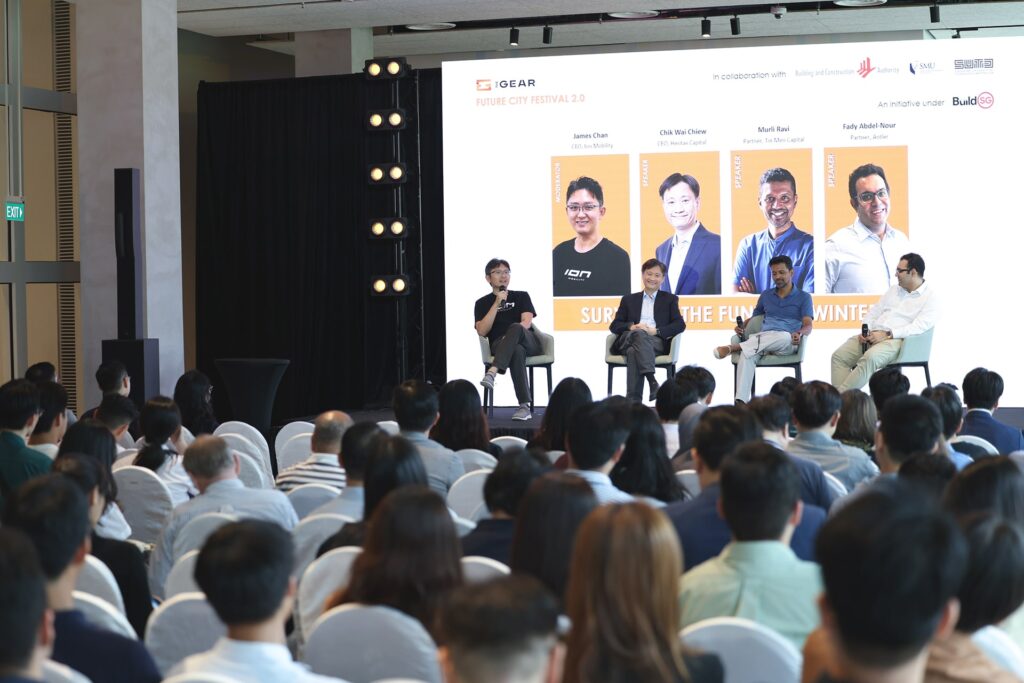
During the discussion, Murli Ravi, partner at Tin Men Capital, characterized the funding winter upfront. He alluded to two positives that have arisen from the current investment climate, namely the demise of startups that “bought” customers using unsustainable strategies, and the rise of value propositions that focus on doing more with less. “When inflation hits and labor is less affordable, technology can come to the rescue,” Ravi said.
On the investment side, Ravi emphasized that startups must judiciously assess investors based on mutual expectations, or risk tricky situations when a startup’s cap table becomes filled with investors of varying expectations—with some likely to sit on the board.
“You want to make sure this is someone who’s aligned with what you want to do. I don’t mean simply in the sense of, look, I want to make a USD 100 million company—that’s too airy-fairy,” Ravi said. “When I say aligned, what I mean is, do they think the same way? For example, if you want to make sure that you have someone who will pick up the phone at 1:00 a.m., ask them, will they do that? Maybe they aren’t in the market for that—maybe they want to be a passive investor.”
Fady Abdel-Nour, partner at Antler, complemented Ravi’s take by discussing the fundamentals of business viability and sustainable growth, stressing the importance of unit economics and customer acquisition strategies. He highlighted the increased scrutiny placed on startups in the current market environment, where demonstrable growth remains paramount.
Echoing similar sentiments, Chik Wai Chiew, CEO of Heritas Capital, reflected on the shifting investment landscape over the past decade. He recalled an era of aggressive growth fueled by low-interest rates, contrasting it with the present market dislocation triggered by the “shifting of seasons.” Chiew underscored the personal toll these changes can take on founders, alluding to the need for resilience and a unified cognitive-emotional approach, and that founders need to “be surgical” in navigating these turbulent times.
James Chan, CEO of Ion Mobility, aligned with Chik’s perspective by sharing a firsthand experience concerning the burgeoning significance of geopolitical factors. Speaking as the discussion’s moderator, Chan shared that such factors are now having an impact on investment activity, citing a case of limited partners (LPs) in the US expressing concern that Ion Mobility has a subsidiary in China.
FCF 2.0 highlighted the significant progress made by Kajima in serving as a catalyst for driving transformative solutions for future cities. With its global reach and commitment to collaboration, Kajima continues to play a leading role in shaping the future of urban development.
KrASIA was a partner for Kajima’s Future City Festival 2.0 held on March 15, 2024.

